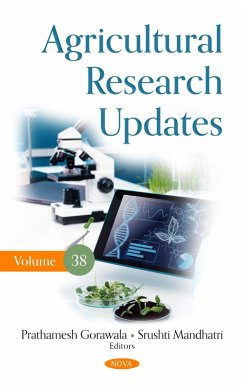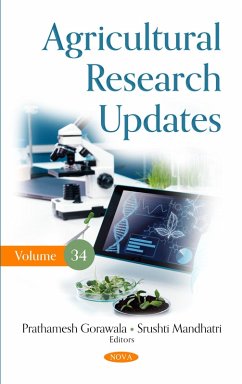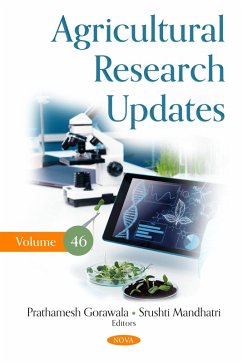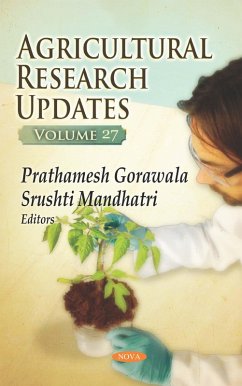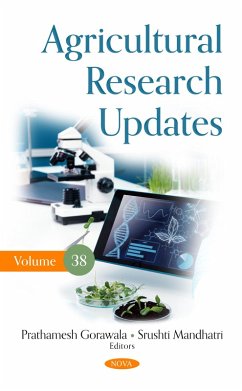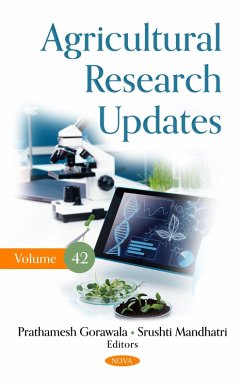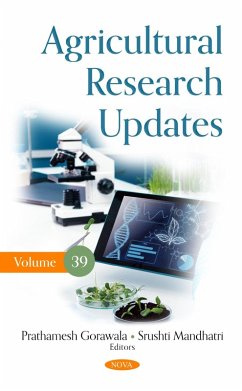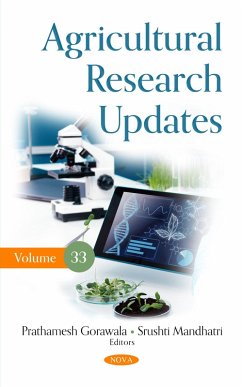This monograph consists of seven chapters that provide unique perspectives concerning issues related to agricultural research. Chapter One reviews techniques for the conversion of liquid digestate into solid products through pelletization, granulation, and other emerging technologies. Chapter Two compiles information on the benefits and potential risks of livestock waste treatment by composting and anaerobic digestion and discusses the effects of livestock compost and digested slurry on yield and quality of fresh-market tomatoes and rice grown in northern Japan. Chapter Three focuses on different systems of cyanobacteria that aid in sustainable agricultural practices. Chapter Four assesses the peer-reviewed literature concerning the effects of agricultural intensification on the conservation status of reptiles in Mediterranean woody crops. Chapter Five describes the preparation and mode of action of edible vaccines, as well as their application in areas such as cancer therapy, birth control, inhibiting autoimmune diseases, recombinant drug therapy, and more. Chapter Six reviews the value of essential oils as natural antimicrobial agents for increasing the shelf life and safety of minimally processed food. Finally, Chapter Seven discusses the methods and scope of plant genetic engineering as well as the applications, advantages and effects of genetically engineered plants on human health and the environment.
Dieser Download kann aus rechtlichen Gründen nur mit Rechnungsadresse in A, B, BG, CY, CZ, D, DK, EW, E, FIN, F, GR, HR, H, IRL, I, LT, L, LR, M, NL, PL, P, R, S, SLO, SK ausgeliefert werden.

